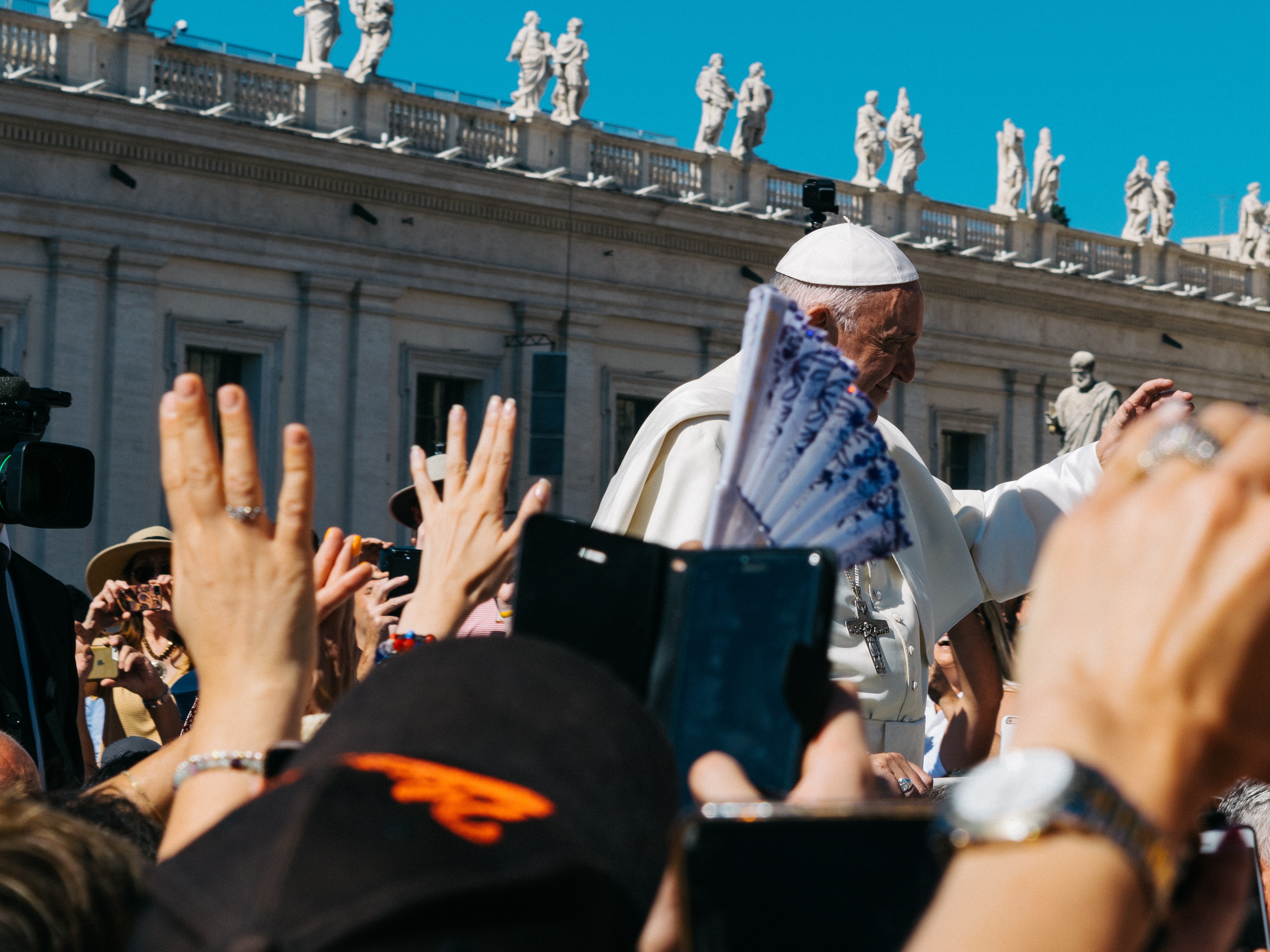
CV NEWS FEED // Pope Francis has called on a group of lawmakers to fight child pornography online, drawing their attention to the threat and encouraging them to use their positions of political influence to defend human dignity.
“By means of policies and regulations, lawmakers can protect human dignity from whatever may threaten it,” Pope Francis told an international delegation of Catholic legislators Friday. “I think, for example, of the scourge of child pornography,” he said, and named a number of other issues as well.
A new movement of advocates have been drawing attention to child pornography in recent years. What they have brought to light, however, has shocked the conscience of many who, while they would oppose the abuse of children, would also support the pornography in general.
As Laila Mickelwait of the Justice Defense Fund has explained, pornography involving underage people is deeply intertwined with the mainstream pornography industry. In the last year, Mickelwait has led a movement that forced at least two of the most popular porn websites in the U.S. to remove large numbers of their online videos.
The porn sites have also lost considerable revenue and the support of financial companies like MasterCard, while facing increasing calls for criminal investigations. At least one site is also the subject of lawsuits by people who, when they were under age, were filmed being sexually abused. Video of their abuse — child pornography — was featured on the site.
Other activists oppose pornography altogether, and see its connection to abuse as inherent. Anti-pornography activist Elizabeth Smart, who was abducted and raped at age 14 in Utah, said in 2016: “I can’t say that he would not have gone out and kidnapped me had he not looked at pornography. All I know is that pornography made my living hell worse.”
It may take time for public perception to catch up fully with the degree to which pornography and child abuse are linked, especially among more socially liberal Americans who are generally supportive of the industry.
Gallup reported that a majority of Democrats found pornography “morally acceptable” for the first time in 2018, with 53 percent saying so after a 21-point spike over the prior 7 years. By comparison, 27 percent of Republicans said pornography was morally acceptable.
Much of the public commentary on the porn industry’s ties to child abuse and trafficking came after that point, however.
American law enforcement have wrestled with sexual crimes against children for decades, and the Trump administration prided itself on cracking down especially hard of child pornography and sex trafficking.
Last year the White House held a summit on the issue of sex trafficking, where President Trump vowed his commitment to rooting it out. “In 2018 alone, the National Human Trafficking Hotline identified over 23,000 human trafficking victims in the United States,” Trump said. “Sixty-five percent of these victims were women. More than one in five were children. Human traffickers prey on their most vulnerable citizens and people.”
As a senator, President Joe Biden also addressed the issue of online dangers to children with the Protect our Children Act of 2008. “At the same time when the Internet has given children access to the world – it has also given a dangerous world access to our kids,” Biden said at the time. “Protecting them requires constant vigilance – in our neighborhoods, in our homes and online. The bill became law.
Photo by Kai Pilger on Unsplash
